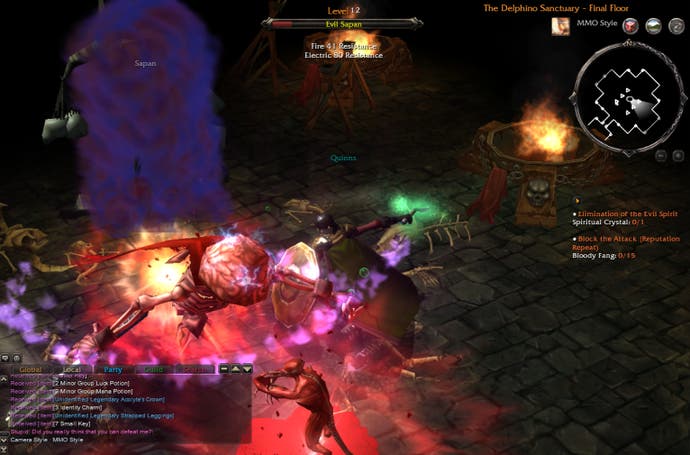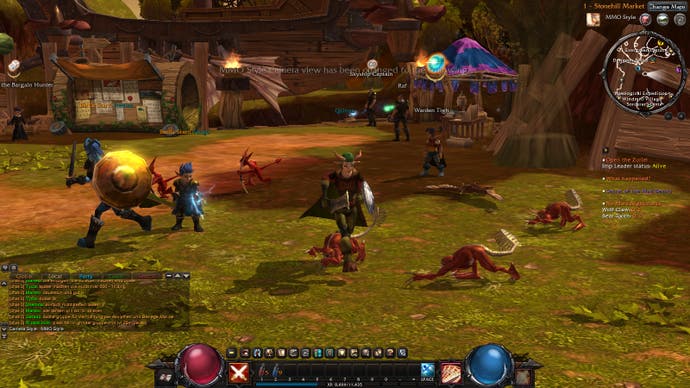Mythos
Mythfire.
There's something not quite right about free-to-play action MMORPG Mythos. It's not a strange game, it's just... wrong. If games were people, Mythos would be that one unassuming pedestrian who you only realise is mad when you're close enough to spot his untied shoelaces and furious face, his eyes like two half-eaten Cadbury's Creme Eggs. Since you've missed your chance to cross the road to safety, you can only hold your breath, look straight ahead and try and slink past this unknown quantity like a submarine.
In short, Mythos is polished in some areas (the tactility of the combat) and unpolished in others (basically everything else). The art design is great, but the style is an unsettling cross between World of Warcraft and Torchlight. The framework is entirely in place for a great action game, yet it's a free-to-play game and there's a strange shortage of content. All boss arenas look the same, half of the quests are FedEx-style delivery jobs between two NPCs and the game doesn't so much try and carry you through a story as spray words at you and hope some of them stick.
Ordinarily in this situation I'd spend the rest of the review flinging my arms around like one of those windsock people, hypothesising why this might be. What's great about Mythos is that we know exactly why it is. In fact, it makes perfect sense.

Mythos started its life back in 2006 as nothing more than a technology test created by Flagship Studios, the company made up of ex-Blizzard employees that was founded in 2003, began work on Hellgate: London, fumbled it exhaustedly onto shop shelves the world over five years later and then closed forever in the face of poor sales. Poor Flagship.
During this time, this technology test was seen as having potential, and a handful of Flagship employees were dedicated to working on it full-time. They were already into the closed beta phase of their Diablo-alike when Flagship closed its doors.
This is where the story gets interesting. Those 14 people that Flagship had working on Mythos formed their own studio, called Runic Games. They went on to make a "spiritual successor" to Mythos, a little game called Torchlight.
A year later, in 2009, a South Korean company called HanbitSoft purchased all assets and intellectual property rights to Mythos, set on not only finishing the game themselves but turning it into a massively multiplayer online game. Which is where we are today.

The second you know that Mythos was built as a precursor to Torchlight, you start seeing similarities everywhere. Torchlight's three classes, the brutal Destroyer, gun-wielding Vanquisher and magical Alchemist have been replaced by the brutal Bloodletter, the gun-wielding Gadgeteer and the magical Pyromancer. Chests and monsters still erupt with loot when opened up, there's still that masterful split-second delay on any of your attacks, and there are still plenty of adorable minions which go scampering around after you.
And yet, HanbitSoft's handiwork is, at times, similarly blatant. There's the in-game shop, where you can pay real money to buy inventory storage upgrades, skill respecs or even to summon a mobile auction house; the crafting, which if it were any more opaque and tacked-on would be a barnacle; and the dialogue. Here's one quest giver's spiel in its entirety:


